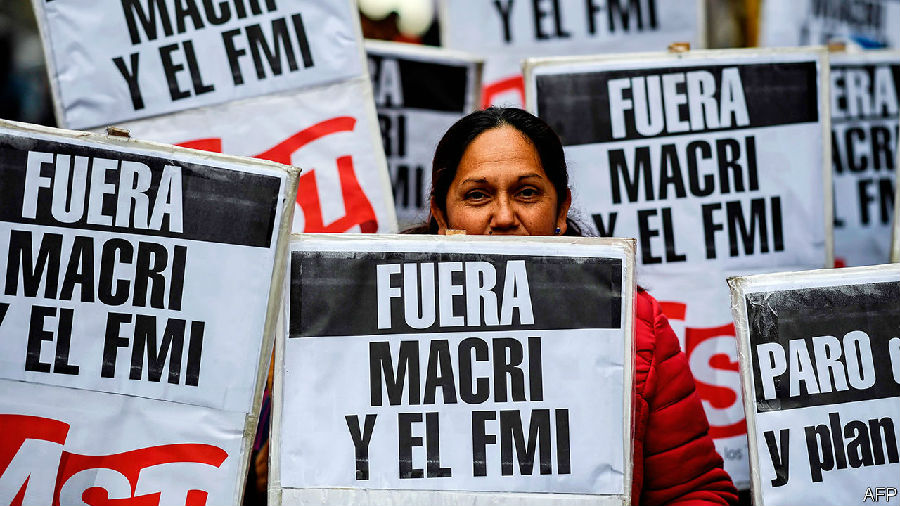- 阅读
- 阅读
- 技巧
- 百科
- 试题
- 文化
- 技能
Argentina was not invited to the Bretton Woods conference in 1944 that created the IMF, and it did not join until 1956.
1944年的布雷顿森林会议创建了国际货币基金组织(IMF),阿根廷没有被邀请参加,直到1956年它才加入IMF。
But it has been making its presence felt ever since. At the end of August a team from the IMF visited Buenos Aires
但自那时起,阿根廷在其中的存在感一直很强。8月底,一直来自IMF的团队来访布宜诺斯艾利斯,
to assess the lie of the land before deciding whether to give Argentina's government, led by Mauricio Macri,
团队要对该地进行评估以决定是否给予毛里西奥·马克里领导的政府
any more of the record $57bn loan (worth over 10% of Argentina's 2018 GDP) agreed last year. But as the team left town, the landscape shifted.
去年通过的570亿美元巨额贷款中的任何一笔(价值超过阿根廷2018年GDP的10%)。但随着团队离开小镇,情况发生了变化。
Mr Macri's government said it would delay $7bn-worth of repayments on shortterm bills held by institutional investors
马克里先生的政府表示其将推迟偿还机构投资者持有的70亿美元短期债券
and seek a rescheduling of over $50bn of longer-term debt.
并寻求对500多亿美元的更长期债务进行重新安排。
It would also request new, extended loans from the IMF to help Argentina repay the money it already owes them.
它还将要求IMF发放新的延期贷款以帮助阿根廷偿还已经欠下的债务。
As the markets digested the news, the ground moved again. On September 1st the government imposed currency controls,
随着市场消化了这一消息,市场再次出现了波动。9月1日,政府实施了货币管制
preventing Argentines from buying more than $10,000 a month, forcing exporters to convert their earnings into pesos,
阻止阿根廷人每月购买超过1万美元,迫使出口商将他们的收入转换成比索,
and placing new restrictions on companies' ability to buy foreign exchange.
并对公司购买外汇的能力实施了新的限制。
"This is not a port we imagined we would reach," said Hernan Lacunza, Mr Macri's new finance minister.
马克里政府的新财政部长埃尔南·拉昆萨表示“这不是我们认为自己将达到的港口。”
The president had, after all, cast off in precisely the opposite direction after coming to power in December 2015,

参与评论